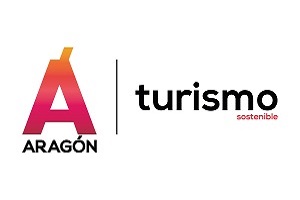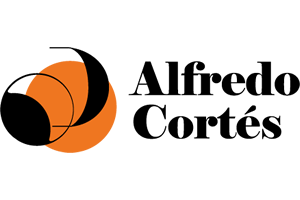Sports tourism is growing. This is evidenced by data from the National Statistics Institute (INE) which show that, although the pre-pandemic figures have not yet been reached, these trips in Spain led to 1,379 million euros in spending by tourists, both national and from abroad. This is a cake that Zaragoza is not shying away from, and the Aragonese capital’s city council is already working to consolidate the city’s strengths as a sports destination.
“It is booming, it is not a subjective issue, but the data corroborate that sports tourism sells and is of interest”, asserts the Councilor for Sports, Cristina García. The municipal responsible admits that the pandemic slowed down “a little bit” the projection of Zaragoza in this aspect, so now they want to overcome this bump by relaunching the attractions of an urban center that has several strong points.
The first, its own location, which places it among many of the great capitals of the country such as Madrid, Barcelona, Valencia or Bilbao. A “privileged” situation, García points out, which facilitates the attraction of events.

Beyond Real Zaragoza and Casademont, the Aragonese capital’s sporting references, the city has “many possibilities” that the city council is seeking to promote. For example, with sporting events such as the marathon held in the city on April 3, which brought 3,028 visitors to the city that weekend.
“The goal should be that all runners mark Zaragoza in their annual calendar, that every year we have more people running the marathon,” said García about a race in which 55% of the runners were from outside the Aragonese capital.
Also noteworthy are the events that Zaragoza hosted last weekend, when the semifinals and final of the Asobal Cup were held, and other less traditional events that attracted an audience to take into account, such as the eLaLiga Santander Cup of the FIFA 22 video game or the match between ‘youtubers’ that took place in the stadium of La Romareda.
Handball brought together some 3,000 people at the Príncipe Felipe Pavilion, many of them from Irún, Logroño and Barcelona, where the teams that played in the final stages of the Cup came from. The figure is similar to that of the esports tournament in the Multipurpose Hall of the Zaragoza Auditorium, although both are below the 17,000 spectators who enjoyed the ‘youtubers’ match.
A dense network of pavilions
Its privileged location is not the only strength, but the city also has a wide network of pavilions, as the councilor explains, which “allows to host championships with many people” and to play several games at the same time.
“We are in the Champions League at national level”, emphasizes the manager of the Tourist Board, Conrado Molina, on the sports infrastructures of Zaragoza, while stressing the close collaboration between his area and that of Sports in view of these events: “We are totally and absolutely linked”, he asserts.
September 24 will be an important date in the city’s sports calendar, as the Spanish national soccer team will play a match at La Romareda after 18 years without playing on the municipal stadium’s turf. It will play against Switzerland and the head of Sports at the City Council expects “a good response” and a full field.
For this, the city council has had to invest almost 400,000 euros in adapting the stadium to international requirements to hold a match that could have a return for the city of close to 3.3 million euros, according to the city council’s estimates.
For the president of the Association of Cafés and Bars, José María Marteles, this meeting will be “a good injection” for the hotel and catering industry and tourism in Zaragoza, since he thinks that with ‘la roja’ in Zaragoza, “hotels and tourist areas will increase sales a lot”.
Beyond big events such as the national team match, the truth is that sports tourism offers more possibilities such as grassroots sports. This is how García sees it, who considers it “essential” for several reasons.
“One, because it always attracts many people who end up staying overnight, and another, because if we don’t have grassroots sport, we don’t have elite sport”, summarizes the head of Sports about events that can attract “2,000-3,000 people to spend a weekend”.
His point of view is almost identical to that of the Tourism manager, who emphasizes that participants in the competitions are usually accompanied by an average of “one and a half or two people”, such as parents, grandparents or siblings who travel to enjoy the competition, which leads to a threefold increase in the number of visitors.
The president of the Association of Cafés and Bars also sees with good eyes the celebration of these championships, since the competitions of the base sport are “great events that move money in hotels, restaurants, bars, souvenirs…”.
“What is very clear is that the city has to promote all the events it can, sporting, cultural, musical… we have to start believing that Zaragoza is a city with culture, sports and activities”, he adds.

Weakness in the Olympus
However, one of the weaknesses of the Aragonese capital has to do with the situation of its teams in the sports elite. Zaragoza has remained in the silver category of Spanish soccer since 2013 and this season has been fateful for the city’s clubs, with the relegation of, for example, Futbol Emotion Zaragoza and Casademont saving its place in the ACB in the last game.
Proof of the importance of being in the top flight is the study carried out by the Chamber of Commerce in 2007, which put the total economic effect of having Real Zaragoza in the First Division for one season at 20,629,809 million euros.
In this respect, García stresses that promotion is a “priority”, as being in the highest category of Spanish soccer “totally changes the scenario” by being part of “the best league in the world”, with the media projection that this entails.
In fact, in recent months the city has been immersed in the debate over the creation of a new stadium. Given the current state of La Romareda, the consensus on the need for a new facility or the remodeling of the coliseum seems clear and the positions on its location are in favor of its current location.
“It is essential to have the new stadium for the external projection of the city, for the club, obviously, because I think you already need a stadium in conditions to compete, but in the end, a soccer stadium in the fifth largest city in Spain moves a lot”, said García about a facility that would allow “a powerful sporting and cultural offer”.
Even more so, with the possibility of the Aragonese capital hosting the 2030 World Cup, in the event that the joint proposal of Spain and Portugal is successful, and the Winter Olympic Games that same year, an event on which more doubts loom due to the controversy surrounding the joint candidacy between Aragon and Catalonia.
“These are opportunities that come and go and you don’t know when they will come again”, considers the councilor, who evaluates as “very important” that Zaragoza would host the World Cup or the Olympic Games. “Any sporting event of this magnitude is always good for the city,” she says.














